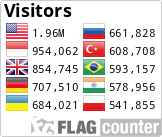The Existence of Mercenaries in Terms of Their Implications for The Fragility of International Peace-Building
DOI:
https://doi.org/10.59613/global.v2i4.154Abstract
This study aims to determine the development / history of the use of mercenaries from time to time, to explain the existence of mercenaries in relation to Private Military Companies (PMC), to determine the implications of the existence of mercenaries on the fragility of international peace-building. As for the results of this study 1). that the mercenary has existed for a long time, in the early Roman empire known the terms Balearic Slingers and Agean Bowmen. In medieval Germany there were known as Landsknechts. In America at the time of the revolution it was called Hessian and in Italy it was called Condottieri. The presence of mercenaries in the past generally originated from the desire of Kings in western countries to form a formidable and large army. However, this requires a large cost. Hence the Kings of Europe at that time, around the 15th-16th centuries, such as the Kings of France, Italy, England, the Netherlands and Switzerland, 2). that mercenaries are not identified with Private Military Company. PMCs do not meet the mercenaries criteria as provided for in Article 47 of the 1977 Protocol. The PMC is as civilian, the PMC is not assigned to fight in armed conflict, is not integrated in the armed forces of the state and does not hold a continuous combat function and thus is not eligible to participate directly in hostilities on behalf of the parties to the conflict, as required to categorize a person as a combatant, 3). That the distribution of mercenaries in various armed conflicts can imply that the existence of mercenaries can threaten world peace --- the fragility of peace-building. Regardless of the debate over legal status, entitled/not entitled, active or passive position in the field and so on
Downloads
Published
How to Cite
Issue
Section
License
Copyright (c) 2024 Erwin Erwin

This work is licensed under a Creative Commons Attribution 4.0 International License.













